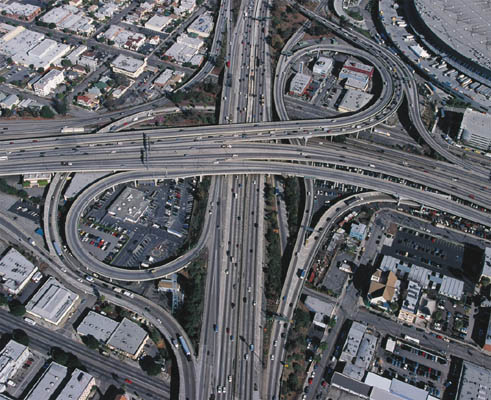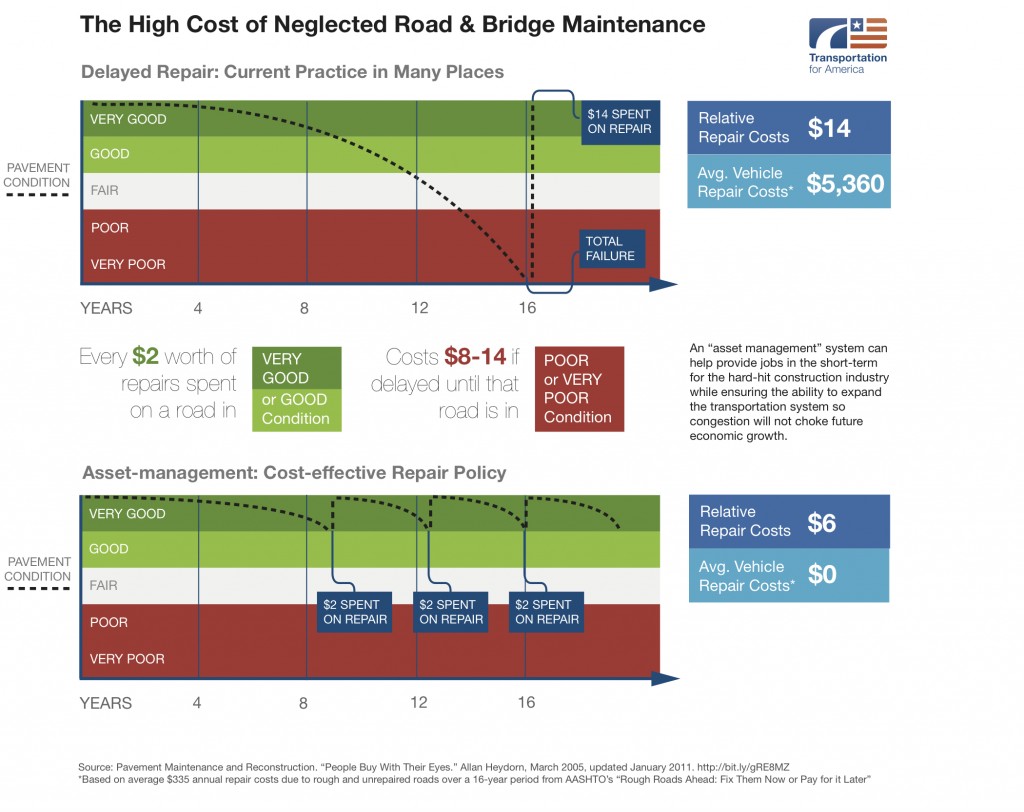Senator Cardin introduces bill to prioritize repair of bridges and roads
 Whether one looks at our interactive tool mapping the nation’s deficient bridges, or the more recent Smart Growth America study on the sorry condition of our roads, there’s plenty of evidence that we’re spending limited transportation dollars to build things we can’t afford to maintain — all while our existing infrastructure cracks and rusts and crumbles due to deferred maintenance.
Whether one looks at our interactive tool mapping the nation’s deficient bridges, or the more recent Smart Growth America study on the sorry condition of our roads, there’s plenty of evidence that we’re spending limited transportation dollars to build things we can’t afford to maintain — all while our existing infrastructure cracks and rusts and crumbles due to deferred maintenance.
One member of the influential Senate Committee drafting the transportation bill introduced legislation aimed at making repair and maintenance of existing infrastructure a higher priority.
The Preservation and Renewal of Federal-Aid Highways Act, introduced by Maryland Senator Ben Cardin, would require the Secretary of Transportation to establish “state of good repair standards” for highways receiving federal funding and set repair guidelines for states.
The bill would also require states to use an “asset management process” to develop their own targets for highway preservation and renewal and would consolidate several existing federal programs into a System Preservation and Renewal Program fund. (Asset management is just a fancy way of describing a program designed to keep tabs on the condition of roads and bridges to ensure repairs are made in the most timely and cost-effective fashion. -Ed.)
Cardin’s office cited the American Society of Civil Engineers’ 2009 grade of “D-” for the nation’s highways as an impetus for the legislation.
“Investing in our nation’s highways and infrastructure has been one the best federal investments we have ever made,” Cardin said in a statement released earlier today. “Our nation’s highways are critical to growing our economy, and repairing and maintaining their quality is required to ensure the lasting efficiency and safety of our nation’s highways and bridges.”
Clear priorities for repair and maintenance are long overdue. A truly reformed federal program combines preserving what we already have while laying the groundwork for a 21st century transportation system with an array of options and real accountability. Cardin’s measure is an essential step toward fixing and restoring trust in the current program.
Cardin’s approach also saves money, a key selling-point when disputes over domestic spending color much of the debate in Washington. For every $1 spent on road repair today, we save between $6 and $14 that would have been spent if we had allowed the same road to deteriorate into poor condition. The Obama administration’s broad outline for a transportation bill also included strong state-of-good repair standards.
Click to enlarge this graphic on the benefits of repairing — and the cost of neglecting — infrastructure.





















Pingback: Streetsblog Capitol Hill » Today’s Headlines
Pingback: Transportation For America » Senate committee due to release bill next week, must prioritize repair